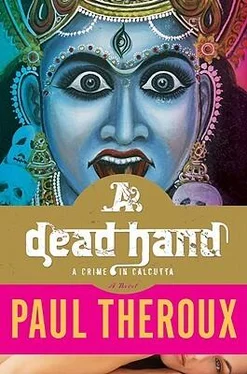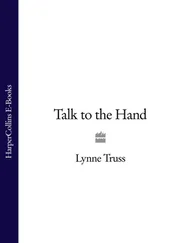Naked under her hands, I could easily have been a child, not just a young boy but an infant, lying there receiving a mother's attentions. But instead of an innocent caress, I wanted something explicit, dominant, and sensual. I had yearned to be touched. I loved her hands and the way heat radiated from the soft skin of her silks, and I longed to be touched more, harder, with more assertion. She lingered on the small of my back, caressed me, and made an elaborate business of finding the muscles in my buttocks, pouring hot oil on them and plucking at them and grinding her fists in them, using both hands until my body was flattened against the table.
She briefly let up. My skin chafed, tingling, and short of breath I was aware of her movement in the room, a disturbance of the perfume, little wisps and eddies of the warm odor at my ears.
Inhaling through her nose, she gripped my shoulders and with a sudden upsweep of her sari got onto the table, straddled me, her knees at my sides. Then she lay lengthwise against me, fitting herself to my back and legs, her chin resting lightly on the nape of my neck, her silks like flesh, the warm weight of her slender body holding me captive.
Like a mother, like a lover, she lay there for a long time, pressing closer, using her arms and elbows, squeezing the breath out of me, imprinting herself on my body. She slowly insinuated herself against me, preventing me from making the slightest movement. I could sense her breathing, her hot mouth open on my neck. I loved her soft body on me, her knees against the backs of my legs. She pressed so hard it was as if she were forcing the life out of me, displacing me, inhabiting me.
I was helpless the whole time. I had done nothing but receive her attention. She was maternal, but more than that: she entered that intimate zone of mothering that is also erotic. Still she lay on top of my naked body, subtly stroking it, using her whole body, confining me until I was overcome with the heat of her breath and the heavy perfume and her flesh vibrant on me with the pulsing of her blood, massaging me with her heartbeat. I did not sleep. Instead I died. No dreams.
I came to life lying face-up, blinking in the light of candle flames. She was holding my head. I was groggy, I couldn't speak. She touched my face, my lips, my eyes.
"You're mine."
She could tell from her fingertips against my head that I was too happy to reply.
"That was amazing."
" Bhoga, " she said, and then, "There's something I want you to see. But not now."
I knew better than to ask when.
She led me through the shadowy corridors of the mansion, and as always I heard the sound of children's voices, the slap and scuff of their feet, the scrape of chair legs, the clink of cabinet doors, and the deeper voices of women, nagging, warning, and drawling reprimands.
The car was parked near the broken fountain, Balraj beside it in the same squatting posture as I'd last seen him. He stood and opened the door for me.
"Don't take a bath," she said from the top of the stairs. "It would wash off all the fragrances and oils. Just rest and drink water. You'll need to rehydrate."
"Traffic," Balraj said as we sat becalmed among hundreds of honking cars and trucks and auto-rickshaws.
Too tired to reply, I nodded at his eyes in the rear-view mirror. Later, after he dropped me at the Hastings, I drank a pitcher of water and slept for ten hours. She had imprinted herself so intimately on me that the whole night I felt her flesh against me, her spirit within me, the touch of her hands, her breath on my neck, her weight, and the cool liquid silkiness of her sari, her skin on my skin, her bones against my bones.
I was not sleeping alone: she was still with me, her odor, her warmth, her womanhood on me, the throb of her blood. I could feel her so distinctly that when I finally awoke I was surprised to find myself alone.
Yet she existed within me. She had insinuated herself there, her spirit lived inside me, I could still feel the pressure of her body. She was palpable, I could taste and smell her, she had left an impression on every part of me, as a physical presence, as a mental image that glowed like a dark flame in my mind. I understood this lightness of soul as something exquisite that strengthened me. I thought: This justifies everything. But I was too superstitious to give it a name.

SLASHES OF DAYLIGHT as white hot stripes dazzled at the slats of my blinds. I had always regarded this light as a reminder that I was in Calcutta; now this brightness was like an apparition of Mrs. Unger. She was warmth and light to me, she was my reason for being in the city, she was life to me — my first thought as I drew a breath that morning, feeling her fingers on my hands. I yawned and sat on the edge of my bed, limp but rested after the deep sleep.
The telephone rang. I guessed who it might be. I fumbled with the receiver as though I'd just settled to earth. The room phones at the Hastings were heavy black Bakelite specimens with stiff twisted cords, phones that had been junked as obsolete everywhere else in the world, but in Calcutta nothing was obsolete. Before I could say anything, I was jarred by a man's voice.
"Dr. Mukherjee here, speaking from police headquarters."
"Yes. Do you have any news about the, um, item?"
"Just a preliminary report regarding fingerprints."
"What did you find?"
"Better question. What did we not find?" he said, pleased with himself for being paradoxical. "I have some issues to address. I will need to see you in person."
"Anytime."
"I am booked up. Next week is better than this," he said. "Do you know occupation of the deceased?"
"I have no idea."
"Could it have been masonry? Tilery? Bricklaying? I have some general notions. Ironmongery?"
I smiled at the old word "ironmongery" in the old crusty voice on the old bulky telephone. It was the Indian illusion, as though I were speaking to someone on an antique line that stretched to the distant past.
"But Dr. Mukherjee, this was a child."
His voice rising in protest, he said, "Child can be manual laborer. Why not, sir?"
"In India."
"India and elsewhere."
I considered this. "Is that all you can tell me?"
"We are proceeding with further tests, as scheduled. Please come next week for consultation."
I was bewildered by his call. To restore my mood, the lightness I'd felt on waking, I worked on my diary after breakfast and for most of the day, writing a description of the massage Mrs. Unger had given me. But it was more than a massage: it was an act of possession. All my hesitation left me when I wrote about it, and it seemed as I reconstructed the episode that I had not only regained my ability but in the writing began to understand what had happened to me, the transformation. And I thought how she had made that day important, and she had given me this day too, a day of writing. So, as she had done for me, in her work in Calcutta she gave her lost children time and hope.
I found I could sit quietly now. I felt no urgency to leave Calcutta nor even to leave the hotel. I was content; she had calmed me. I understood her better as a humanitarian — a mother figure — giving reassurance. It was not a matter of money but rather of a depth of feeling. It amazed me that she was hardly known.
The following morning, another blazing day, the phone rang again, this time before I was fully awake. I took it to be Dr. Mooly Mukherjee with an update, but it was Mrs. Unger.
"I'm downstairs in the lobby. Don't be too long — we need to be somewhere fairly soon. And we've got a big day ahead of us. Have you been sleeping well?"
Читать дальше













